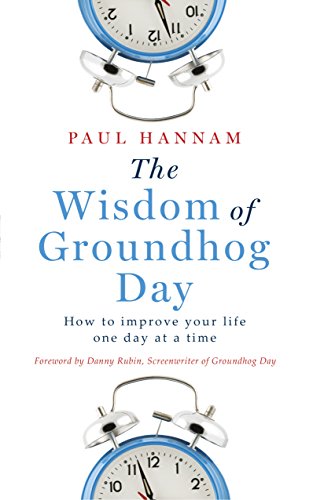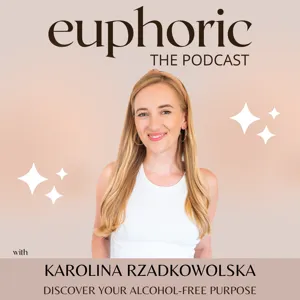Podcast Summary
Understanding Anger: Costs, Benefits, and Regulation: Anger is a complex emotion with both costs and benefits. Recognize signs of irritation, distinguish between acute and chronic anger, and manage anger to harness its positive aspects while avoiding negative impacts.
Anger is a complex emotion with both costs and benefits. It's a basic emotion closely tied to our biological systems and can be a powerful mobilizing force when harnessed positively. However, when not regulated, it can lead to negative consequences for our bodies, relationships, and the world. Dr. Rick Hansen, a clinical psychologist and Forrest's father, emphasizes the importance of distinguishing between anger as a mood and anger as an acute state. He suggests becoming more attentive to subtle signs of irritation and frustration and understanding the difference between rage and predatory pursuit. Dr. Hansen also shares his personal experience of exploring anger in his own practice, particularly in relation to anxiety and feelings of shame or inadequacy. Overall, the conversation highlights the importance of understanding and managing anger to avoid its negative impacts while utilizing its positive aspects.
Understanding Anger's Harmful Impact: Anger is a natural emotion, but its aversive aspects can harm ourselves and others, making it a significant issue in social settings, emphasized in Buddhist tradition
Anger, as an emotional state, is a natural response to unpleasant situations. However, it's the aversive aspects of anger that can lead to harm and suffering for ourselves and others. In Buddhist tradition, anger is considered one of the three poisons or fuels for the fires of craving, leading to harm. Anger's impact on others is significant, making it a particularly harmful emotion in social settings. The Buddhist tradition, which arose in a time of great oppression, emphasizes the importance of understanding and managing anger due to its harmful effects on others.
Anger's Complex Nature: Anger can feel good but cause harm, serve as a teacher, and be approached with awareness and mindfulness
Anger, while often seen as negative, can have positive aspects and is a complex emotion with both rewards and harms. In the Buddhist tradition, anger is described as having a "honeyed tip" with a "poisoned barb," meaning it can feel good in the moment but cause harm to oneself and others later. Anger can be harmful to others, and its impact should not be underestimated. However, it can also serve as a teacher, revealing our values and motivations. It's essential to recognize the complexity of anger and approach it with awareness and mindfulness. The labeling of emotions as good or bad can be limiting, and it's crucial to understand that emotions, including anger, are just experiences that come and go, tied to sensations in the body. Ultimately, the key is to be aware of the costs and benefits of anger and to use it constructively when possible.
Understanding the Complexity of Anger: Anger masks deeper feelings, serves as a tool for self-discovery, and can be addressed through therapy to reconnect with emotions and make positive changes.
Anger is a complex emotion that often masks deeper feelings such as sadness, envy, or feelings of being treated unfairly. Anger can serve as a tool for self-discovery and can indicate a sense of helplessness or futility. It's important to recognize the drivers of anger and to help people understand that it's appropriate to feel angry about certain situations. In therapy, the focus is often on working through beliefs that may be disconnecting people from their anger, as well as addressing emotional and somatic blocks that may be rooted in childhood learning and fears of punishment or rejection. By acknowledging and addressing these hindrances, people can reconnect with their anger and use it as a catalyst for positive change.
Learning to Express Anger Healthily: Recognizing societal conditioning, seeking therapy, and embracing anger can lead to emotional healing and growth.
Allowing oneself to express anger in a safe and healthy way is crucial for emotional well-being. People often suppress their anger due to societal or familial conditioning, leading to an unhealthy relationship with the emotion. Therapy can provide a safe space for individuals to express their anger and learn to do so authentically. Anger can be repressed due to fear, and individuals may try to alleviate others' fears or concerns, which can sometimes be counterproductive. It's essential to recognize that everyone's experiences and backgrounds are different, and what works for one person might not work for another. Embracing anger and learning to express it appropriately can lead to healing and growth.
Exploring the benefits of expressing emotions: Expressing emotions in a safe space can lead to upregulation, allowing for productive engagement and improved mental health. Freud's work highlights the importance of acknowledging repressed emotions, particularly aggression. Dr. John DeLaney's counseling approach and ZOE Science podcast offer valuable resources for emotional and physical well-being.
Allowing people to express their emotions, especially anger, in a safe and supportive environment can be beneficial, rather than trying to suppress them all the time. This concept, known as upregulation, can help individuals engage with their emotions in a productive way. Freud's work on the suppressed drives of society also sheds light on this idea, suggesting that in some cultures, aggression is the primary emotion that is repressed. The therapeutic approach of Dr. John DeLaney, a counselor with a popular podcast, offers practical advice for navigating emotional challenges. Additionally, for those interested in physical health, the ZOE Science and Nutrition podcast is an excellent resource for making informed decisions based on scientific research.
Effectively managing anger: Acknowledge anger, express it healthily, and use validated solutions for self-care to minimize negative impacts.
Managing anger effectively involves acknowledging its existence while minimizing its negative impacts. This can be achieved by reclaiming the capacity to fully experience and express anger, without necessarily acting it out. By doing so, individuals can become more integrated and vital, reducing the likelihood of anger hijacking them or causing harm to others. Additionally, the use of scientifically validated solutions, like OneSkin's OS01 face topical peptide, can help individuals focus on their self-care and overall well-being, allowing them to approach anger with a more balanced perspective.
Surround yourself with support and self-awareness for anger management: Expressing anger effectively involves building strong relationships, finding safe environments, and recognizing emotion triggers to prevent escalation.
Effectively managing and expressing anger requires support from others and self-awareness. Surrounding oneself with strong social relationships and finding environments where one feels safe to express emotions can be crucial. Additionally, becoming aware of the precursors to anger and dealing with them can help prevent the anger from escalating. The build-up of negative interactions, or "throwing matches into the corner of a room," can lead to a bonfire of anger. Processing emotions as they arise instead of repressing them can help diffuse the priming and lead to personal growth and healing. Remember, slowing down the anger process can reveal important underlying feelings, such as hurt or disappointment.
The story of the monk and the empty boat shows that anger comes from within: Recognize anger's internal source, develop internal control, and foster authentic relationships
Controlling our anger begins with recognizing that it comes from within us. Anger is not something that is caused solely by external factors. The story of the monk and the empty boat is a powerful reminder of this truth. People who struggle with anger often have an external locus of control, meaning they believe their well-being is determined by external sources. This can lead them to focus on controlling their environment rather than looking inside themselves for emotional regulation. However, we cannot always control our external environment, and focusing too much on it can hinder our ability to manage our emotions effectively. Instead, it's essential to develop an internal locus of control by learning to regulate our emotions from within. By doing so, we can become more vulnerable, softer, and integrated, leading to more meaningful and authentic relationships with others. Additionally, famous social reformers throughout history have demonstrated that being centered and not letting anger hijack us can give us profound moral authority and the ability to communicate with seriousness and traction.
Understanding Anger's Complexities: Anger has costs and benefits, can hide underlying emotions, and can be harnessed for personal growth and positive action
Anger is a complex emotion with both costs and benefits. It's important to recognize that anger can be an affliction upon us, causing harm when we direct it towards others or suppress it within ourselves. However, anger can also be a valuable tool for identifying what we truly care about and mobilizing ourselves or others towards positive change. It's essential to find a balance between acknowledging the negative aspects of anger and harnessing its positive energy. Anger can hide underlying emotions, and exploring these emotions can lead to self-awareness and understanding of our relationships and values. Anger, when used mindfully, can be a powerful force for personal growth and positive action.
Understanding the Complexity of Anger: Anger is a complex emotion with both benefits and drawbacks. Identify causes, respond thoughtfully, recognize fear, increase self-awareness, and express anger healthily.
Anger is a complex emotion with both useful and harmful aspects. It can help us get unstuck and take action, but it can also lead to negative consequences if not managed properly. To effectively work with anger, it's important to identify and address the underlying causes, such as accumulated irritations or unmet needs. Slowing down and taking a moment to gather ourselves can also help us respond thoughtfully instead of reacting impulsively. It's essential to recognize the connection between anger and fear, and to evaluate our fears realistically while ensuring our safety. Ultimately, increasing self-awareness and understanding our individual tendencies can help us navigate anger more effectively and harness its useful aspects while minimizing its costs. Additionally, recognizing the role of the body in the anger response can aid in managing and expressing anger in healthy ways.
Identify physical manifestations of anger and use relaxation techniques: Recognize anger's location in your body, practice deep breathing, relax shoulders, or lean back in chair to manage anger effectively
Anger is a powerful emotion that can be managed effectively by recognizing its physical manifestations and implementing calming techniques. Anger is closely linked to our threat system, making it a visceral emotion. When feeling angry, it can be helpful to identify where the anger resides in your body and practice relaxation methods, such as deep breathing, relaxing shoulders, or leaning back in your chair. These techniques do not diminish your appropriate anger but instead help you use that energy without being consumed by it. Remember, the goal is to harness the value of anger without incurring excessive costs. If you found this episode insightful, consider subscribing to our podcast, leaving a review, or supporting us on Patreon for bonus content. Thank you for listening.







